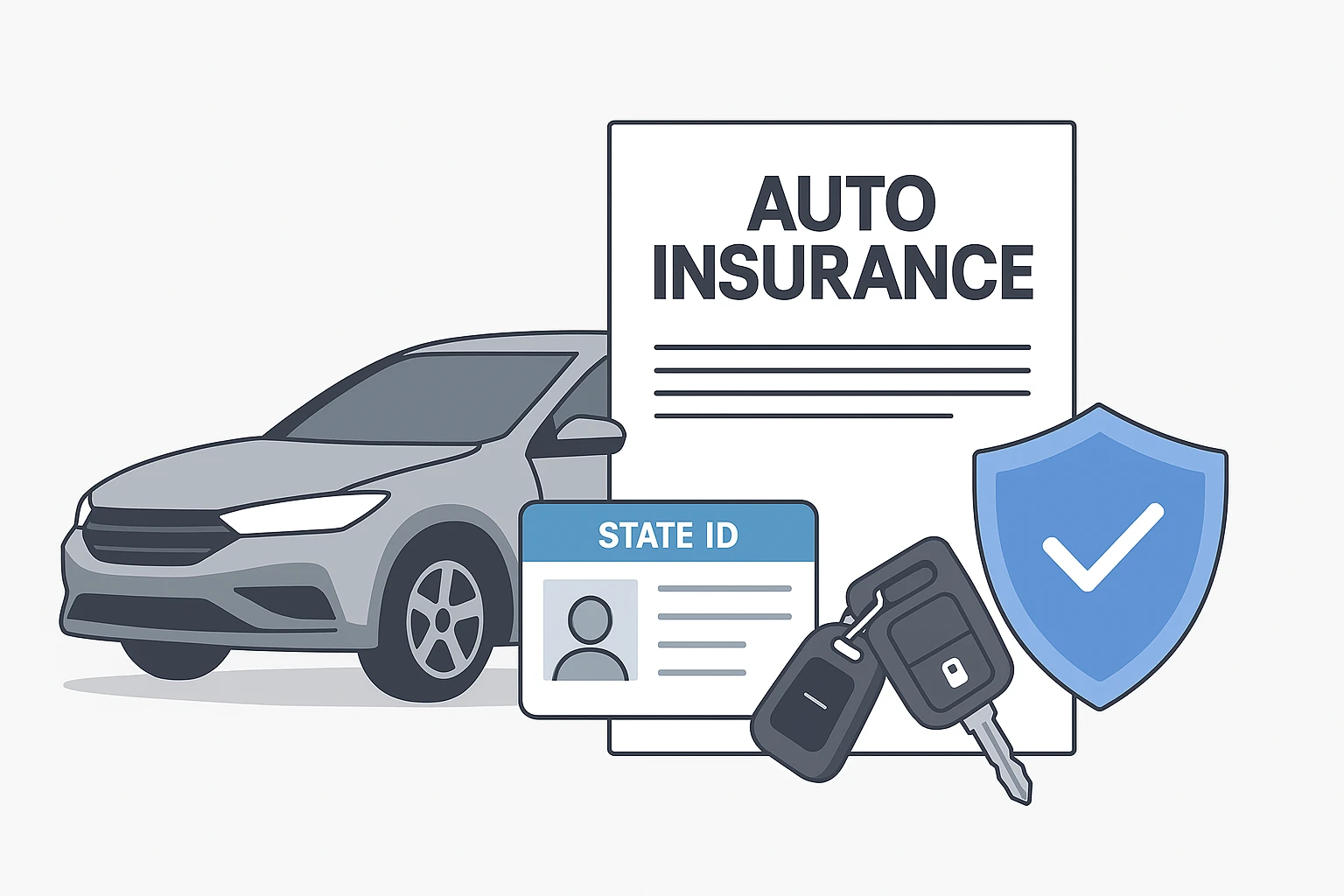Introduction
Most people assume that having a valid driver’s license is a non-negotiable requirement for auto insurance. After all, if you can’t legally drive, why would you need insurance? But in reality, life is rarely that simple. There are situations in the United States where people without a driver’s license may still need to insure a car. For example, maybe you own a vehicle but don’t drive it yourself, or you have a health condition that prevents you from driving, but your spouse or caregiver uses your car.
So, the short answer is: yes, it is possible to get auto insurance without a license—but it’s not as straightforward as a typical policy. Insurers view unlicensed drivers as higher risk, which makes the process more complex. Let’s explore how it works, why you might need it, and what challenges you may face.
Why Would Someone Need Auto Insurance Without a License?
While it may sound unusual, there are several very practical reasons why someone might need coverage without holding a valid license.
1. Car Owners Who Don’t Drive
Let’s say you bought a car for your spouse or teenage child, but you don’t drive. Even if you’re not behind the wheel, you may still want insurance because the car is in your name.
2. Elderly or Medically Restricted Drivers
Some seniors or people with medical restrictions give up driving but keep ownership of their vehicle. They may need insurance for a caregiver, family member, or chauffeur who drives the car.
3. Collectors and Car Enthusiasts
Many collectors store vintage or classic cars that rarely see the road. Insurance is essential to protect these vehicles against theft, fire, or natural disasters—even if the owner doesn’t have a license.
4. Suspended License Situations
If your license has been suspended (say, for unpaid tickets or DUI-related issues), you may still want to maintain insurance to avoid a lapse in coverage. A gap in insurance history can raise your premiums when you eventually reinstate your license.
Is It Difficult to Get Auto Insurance Without a License?
The honest truth: yes, it’s more difficult.
Most insurers use your driver’s license number to check your driving record and assess risk. Without that information, many companies will either deny coverage or charge higher premiums.
However, that doesn’t mean it’s impossible. Some insurers allow you to:
- List another licensed driver (such as a spouse, caregiver, or family member) as the primary driver.
- Name yourself as the vehicle owner but exclude yourself as a driver on the policy.
For example, if you bought a car for your adult child who has a license, you can be listed as the owner, while your child is listed as the primary driver.
How to Get Auto Insurance Without a License
1) Work with Insurance Companies That Allow “Named Drivers”
Some insurers are flexible and let you list a licensed driver as the primary operator of your vehicle. This is the most common solution.
2) Consider a State ID Instead of a License
In some cases, insurers may accept a state-issued photo ID (non-driver ID) for identity verification. This can substitute for a license if you’re only the owner, not the driver.
3) Explore SR-22 Insurance if Needed
If your license has been suspended due to violations, you may need an SR-22 form, which is a certificate proving you have the minimum required coverage. This can help you keep insurance active during the suspension period.
4) Shop Around Aggressively
Not all companies are open to writing policies without a license. Large insurers often say no, while smaller or regional companies may be more flexible. Working with an independent insurance agent can save you hours of searching.
Potential Challenges
- Higher Premiums: Since insurers can’t assess your driving history, they may view you as a higher risk.
- Limited Options: Many mainstream carriers won’t insure unlicensed drivers.
- State Regulations: Rules vary by state, so what works in California may not be possible in Texas.
Real-Life Example
Imagine Sarah, a 72-year-old woman in Florida. She recently gave up her license due to vision issues, but she still owns a Toyota that her caregiver drives. Without insurance, her car would be financially unprotected in case of an accident or theft. By listing her caregiver as the primary driver and herself as an excluded driver, she was able to keep her car insured.
This scenario shows why coverage without a license isn’t just possible—it’s sometimes essential.
FAQs
1) Can I insure a car without ever having a license?
Yes, but you’ll need to list a licensed driver as the primary operator of the vehicle. You’ll usually be excluded as a driver yourself.
2) What if my license is suspended?
You can still maintain insurance during suspension. In fact, keeping insuraence active helps avoid higher rates later. Some states may also require an SR-22 filing.
3) Can I buy a car without a license?
Yes, you can legally purchase and register a vehicle without a license in most states. But to drive it on the road, a licensed driver must be behind the wheel, and the car must be insured.
4) Will insurance be more expensive without a license?
Generally, yes. Since the insurer can’t assess your driving record, they may charge higher premiums or limit your options.
Conclusion
So, can you get auto insurance without a license? The answer is yes—but with important conditions. While most insurers prefer licensed drivers, there are valid life circumstances where coverage is still necessary. Whether you’re an elderly car owner, a collector, or someone with a suspended license, insurance provides essential financial protection.
The key is to shop around, be transparent with insurers, and list a licensed driver as the primary operator. In the end, protecting your vehicle and your finances matters more than whether or not you personally have a license.
